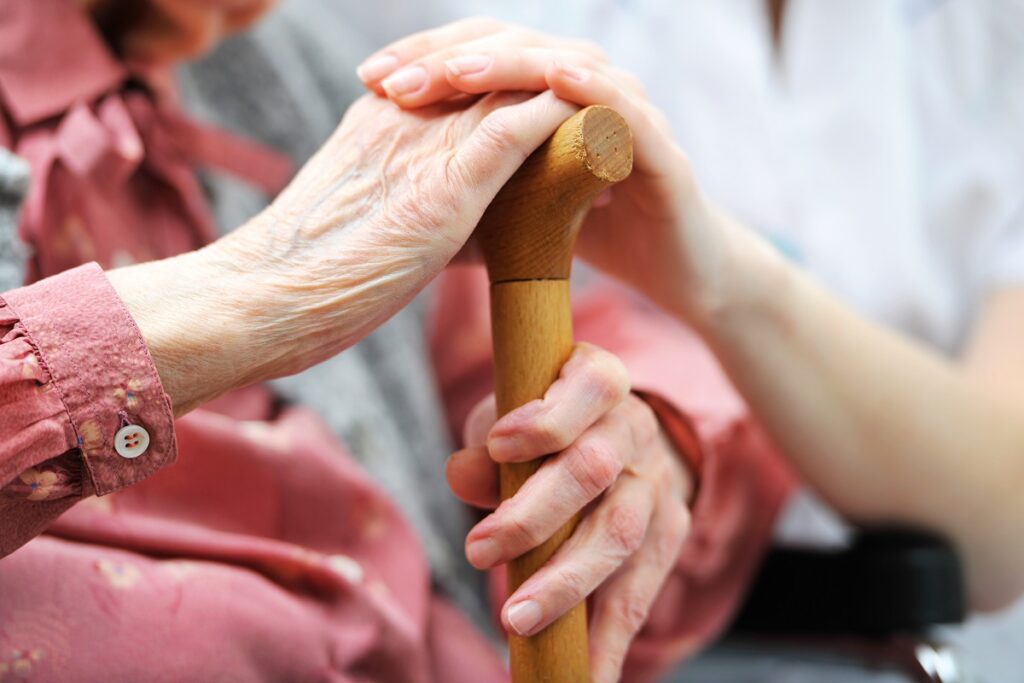- End-of-life care options include hospice, palliative, and home care, each with unique benefits and challenges.
- Decisions about care depend on resources, illness severity, and the patient’s personal wishes.
- Resources available to families include medical teams, online platforms, and geriatric care professionals.
- Self-care is crucial for caregivers dealing with the emotional and physical demands of end-of-life care.
As your loved ones age, you must face the reality of end-of-life care. While it may not be a topic you want to discuss, understanding the options available can provide you with a sense of control during a difficult time. Here are the different types of end-of-life care, factors to consider when making decisions, and resources available to families.
Types of End-of-Life Care
There are several types of end-of-life care, each with its purpose and set of benefits. Some families opt to care for their loved ones at home, while others consider different long-term care options. Here’s a rundown of all the possible choices:
Hospice Care
Hospice care provides comprehensive comfort to patients who are nearing the end of life. It is centered on the idea of quality rather than quantity of life, focusing on easing physical pain and managing emotional distress. A reliable hospice involves a multidisciplinary team of professionals, including doctors, nurses, social workers, and chaplains, all working in concert to ensure that patients spend their final days in dignity and peace.
Palliative Care
If your approach is to enhance the quality of life of patients and their families who are facing problems associated with life-threatening illnesses, palliative care is the right choice. It focuses on providing relief from pain, physical stress, and mental stress at any stage of the disease — not only at the end stages. This type of care is all about offering comfort and support and can be provided alongside curative treatment.
Home Care
Home care can vary widely depending on the needs of the individual. It can range from professional health care services delivered at home to assistance with daily activities such as bathing, dressing, and meal preparation. Home care may be a good solution for those who want to remain in a familiar environment during their final stages of life. This type of care requires a strong support network, whether from family, friends, or professional caregivers.
Factors to Consider When Making Decisions
Making end-of-life decisions can be challenging, and there is no one-size-fits-all solution. It is important to remember that it is entirely your choice to decide the course of care and that you can always change your mind later. Here are some of the factors to consider:
Resources Available to Families
Several resources are available to families navigating end-of-life care. Consider speaking to your loved one’s medical team and social worker to gain a better understanding of the options available to you.
Additionally, online resources, such as the National Hospice and Palliative Care Association and the Family Caregiver Alliance, offer information, support, and guidance to help make decisions during this time. It may also be helpful to hire a geriatric care manager or elder law attorney to assist you as you navigate the complex healthcare system.
The Severity of the Illness
The seriousness of the illness plays a significant role in deciding the type of end-of-life care for your loved one. Some diseases may progress rapidly, necessitating a higher level of care and support, such as hospice or palliative care. Other conditions may deteriorate gradually, allowing for the possibility of home care with appropriate medical supervision and assistance.
Understanding the illness’s trajectory, possible complications, and life expectancy can help guide these decisions. Consulting with healthcare professionals who are knowledgeable about the specific disease can provide invaluable insights into probable outcomes and care requirements.
Wishes of Your Loved One
A central consideration in end-of-life care decisions should be the wishes of the person who is ill. Their values, preferences, and comfort should guide the choice of care. Some individuals may wish to remain in their homes, surrounded by familiar settings and faces, while others may opt for professional care settings like a hospice, depending on their needs and comfort level.
The person’s wishes may also evolve as their illness progresses, which is why maintaining an ongoing conversation about their preferences throughout their care journey is crucial. It’s essential to respect these wishes to ensure their final phase of life is as comfortable and dignified as possible.
Caring for Yourself
While caring for your loved one is essential, it is also important to care for yourself. End-of-life care can be emotionally and physically taxing, and it is important to practice self-care and seek support.
Consider joining a support group or speaking with a professional counselor. Additionally, taking care of your mental and physical well-being, eating a balanced diet, and ensuring ample rest can improve your ability to cope and support your loved one.
If possible, delegate tasks to family members and friends who are willing to help. This will not only allow you to focus on the care of your loved one but also provide them with a sense of purpose.
Navigating end-of-life care can be an emotional and challenging experience for families. Understanding the different types of care, factors to consider when making decisions, and resources available can help provide a sense of control during this time. Remember to care for yourself, seek support, and make decisions that align with the wishes of your loved ones and family members.


